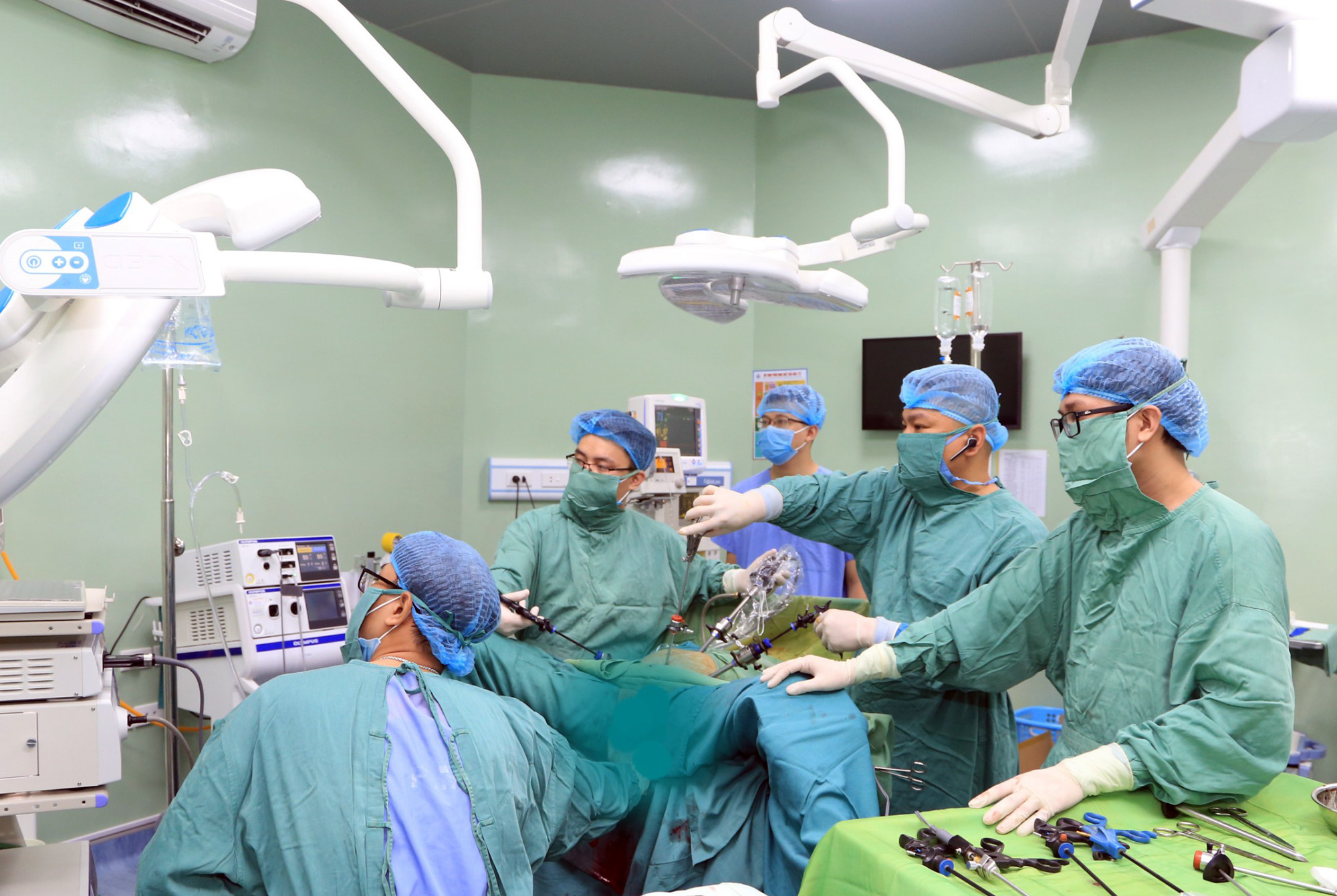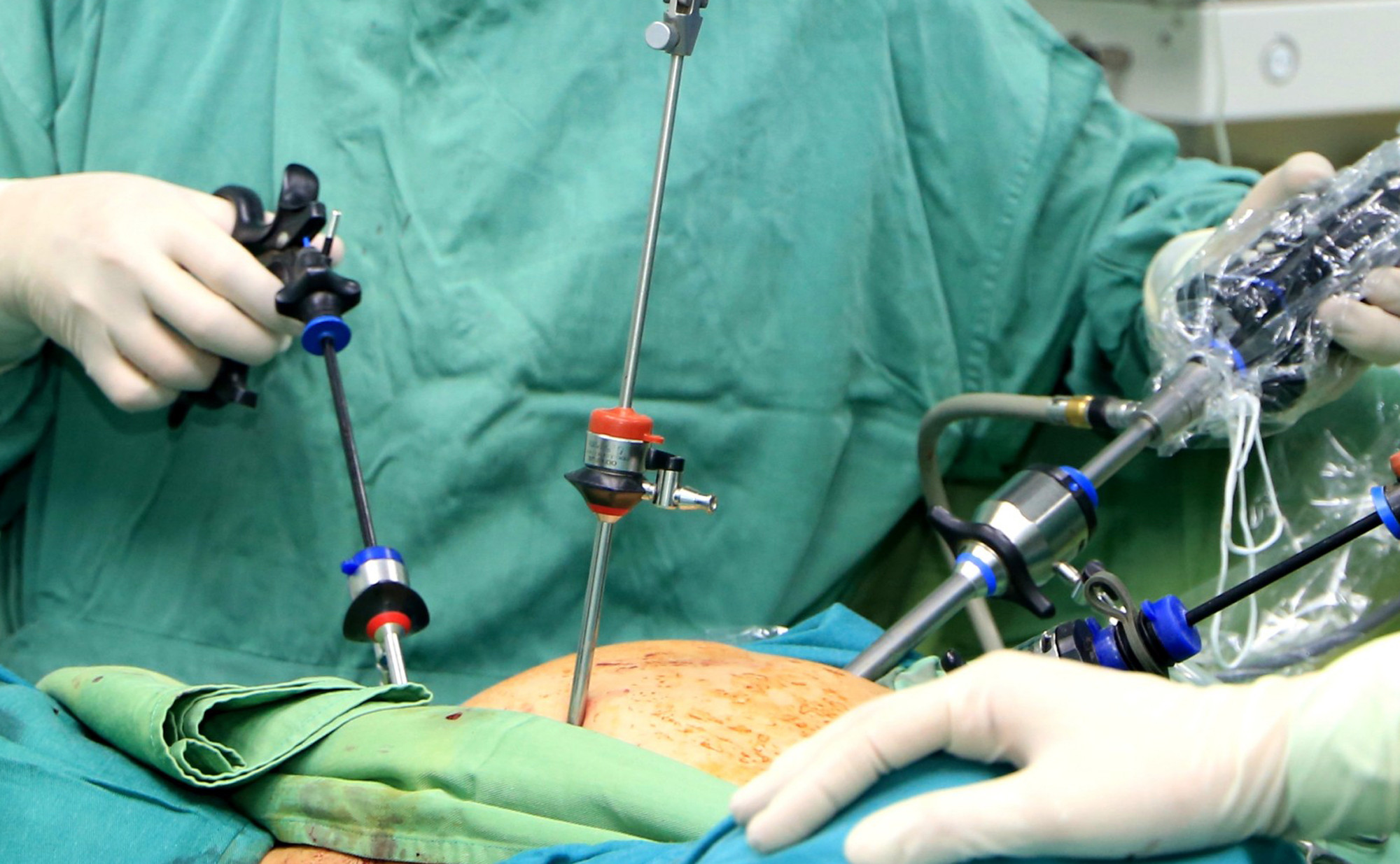Nghe An Obstetrics and Pediatrics Hospital: Laparoscopic surgery to treat cervical cancer
(Baonghean.vn) - To help cervical cancer patients treat the disease effectively and recover quickly, doctors at Nghe An Obstetrics and Pediatrics Hospital decided to perform minimally invasive laparoscopic surgery to remove the uterus and remove extensive pelvic lymph nodes for the patient.
Ms. LTT (55 years old, residing in Con Cuong district) has been in menopause for 2 years. However, in recent months, Ms. T has had abnormal vaginal bleeding, accompanied by abdominal pain. Arranging her work, Ms. T went to the district hospital for examination and was referred to the hospital.Nghe An Obstetrics and Pediatricscheck. Here, through examination and testing, the doctors concluded that she had cervical cancer, invasive cancer cells and asked her to be hospitalized and have laparoscopic surgery for treatment.
 |
| Doctors perform laparoscopic surgery to treat cervical cancer on a patient. Photo: Hoang Yen |
After nearly 3 hours of surgery, the surgical team of the Department of Obstetrics and Anesthesia and Resuscitation successfully performed surgery on patient T. The patient had a radical hysterectomy and 13 pelvic lymph nodes were removed using minimally invasive laparoscopic surgery.
Doctors also conducted pathological analysis on these organs to decide on the next treatment plan. Despite the complicated surgery, after only 1 day, the patient was completely awake, less painful, the incision was very small to ensure aesthetics. Currently, the patient can eat and walk normally. The patient is expected to be discharged in the next 2 days.
 |
| The incision is very small to ensure aesthetics. Photo: Hoang Yen |
If cancer is detected in its early stages and treated promptly, the 5-year survival rate is 95%. On the contrary, if it is detected in its late stages, when the cancer has metastasized, the 5-year survival rate is only 10%. The typical sign of cervical cancer is abnormal vaginal bleeding, especially after sexual intercourse, between menstrual cycles or after menopause.
To prevent cervical cancer, women should get vaccinated against HPV (for girls from 9 to 26 years old, who have not had sex). Women need to periodically screen for cervical cancer by Pap smear (for women 20-30 years old) or HPV test (for women 30-65 years old) to detect abnormal cells and/or precancerous cells in the cervix so that early treatment can be given with a high chance of success./.

